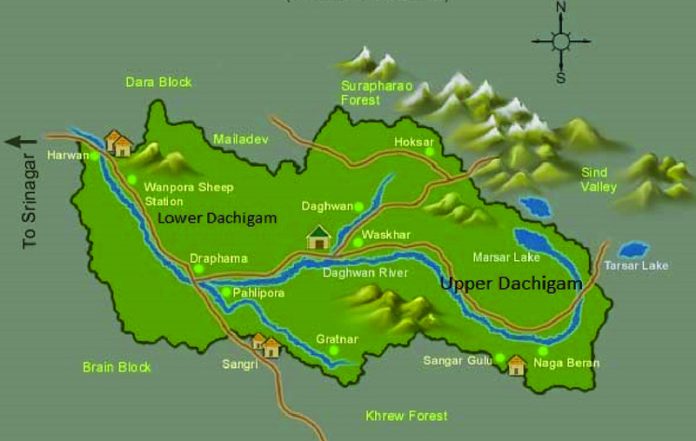Jammu and Kashmir, facing a rapid decline in its glacier cover, has prompted the Union Ministry of Environment, Forest and Climate Change (MoEFCC) to release a preliminary notification designating three critical areas in the region: Dachigam National Park, Thajwas Wildlife Sanctuary, and Overa-Aru Wildlife Sanctuary. The Government has been instructed to establish a committee to oversee the eco-sensitive areas in J&K and promptly delineate their boundaries. The committee, according to the notification, should comprise an ecology and environment expert, a representative from a non-governmental organisation focused on environmental conservation, and a biodiversity specialist.
Time and again, the National Green Tribunal (NGT), the Supreme Court, the High Court, and the MoEFCC have issued a multitude of directives aimed at preserving our forests, environment, and ecology. It is a deeply concerning matter that, despite the repeated warnings from these authoritative bodies, the Building Operations Controlling Authority (BOCA) is facilitating construction for a specific party to erect a hotel in the Sonamarg region. These actions represent severe violations on the part of BOCA. The recent revelations by the CBI in the High Court have served as a stark wake-up call. The majority of hotels, restaurants, and guesthouses were constructed without proper authorization, flagrantly disregarding a Supreme Court judgement regarding Patnitop. Several development authorities are operating in contravention of established guidelines, and numerous cases are either under investigation or subject to legal proceedings in courts involving high-ranking officials. Regrettably, these legal actions do not seem to have acted as an effective deterrent. Officials continue to push forward with construction projects under the pretext of development. It is abundantly clear that uncontrolled and extensive construction has wreaked havoc on our environment. Repeated disasters in various states, particularly in mountainous regions, have had catastrophic consequences. Regrettably, it appears that officials have failed to learn any lessons from past experiences, even within the context of Jammu and Kashmir.
J&K’s glaciers are receding at an alarming rate, far exceeding any acceptable proportions, yet there is an unprecedented push to advance construction agendas in eco-fragile zones. All the three designated regions are wildlife sanctuaries, each with its own established and stringent rules and regulations. It is a matter of grave concern to investigate how and why these officials are repeatedly flouting established procedures. In reality, once construction is completed, often after the destruction of forested areas, it can take years, and in some cases, decades, for the courts to intervene and render a final judgment. In the meantime, extensive damage has already been inflicted. All legal entities must adopt a proactive stance to thwart attempts to disrupt the delicate balance of nature. There are numerous eco-friendly approaches to promoting development that should be prioritised and pursued. Every tourist destination has its capacity to accommodate visitors, and exceeding these limits will result in irreparable damage. It is a fact that, due to the persistent pressure and the unwavering stance of the courts, some semblance of order has been maintained.
With the ongoing reduction of forest cover, temperatures are on the rise, leading to the accelerated melting of glaciers. Some of these glaciers have dwindled to alarming size. The repercussions of receding glaciers are dire, including a lack of water in downstream rivers in times of dry season. J&K has already witnessed this phenomenon in several of its waterways, with the Jhelum River’s water level falling below a meter at certain points. The cascading effects include scarcity of drinking water, inadequate water supply for hydroelectric projects, severe electricity shortages, and a decline in tourism. In the face of such grave consequences, if officials remain reluctant to adhere to established guidelines, our environment will suffer immeasurable harm. The UT administration must now acknowledge the gravity of the situation and issue the necessary directives to development authorities.
Trending Now
E-Paper


